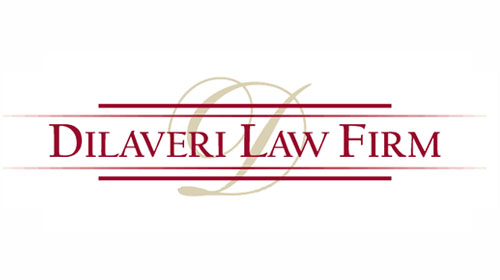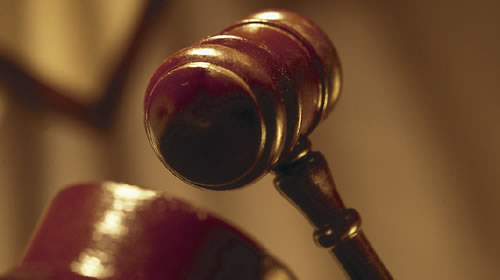Rochester Minnesota
Criminal Defense & DUI Attorney
How Can We Help You
Rochester Minnesota Probation Violation Attorney
Probation Lawyer Minnesota
After a guilty plea is entered, or following a conviction at trial, the next stage of the criminal proceeding is the sentencing. The various kinds of sentences that can be imposed are noted here In most cases, unless the offender is sentenced to prison, the Court will stay the imposition or execution of the sentence and order the offender to be on probation for a determinate period of time along with “intermediate sanctions.” Intermediate sanctions include time in the local jail, home detention, electronic monitoring, sentence to service, chemical dependency treatment, fines or community work service, and so on.
As noted by the Minnesota Statutes, the purpose of probation is to provide an alternative to imprisonment and is designed to:
- deter further criminal behavior;
- punish;
- provide reparation to victims and communities; and
- rehabilitate the offender.
Probation is generally favored, even after its terms have been violated. However, a judge has great discretion in deciding whether to allow an offender to continue on probation, or to revoke the probation, execute the sentence, and order the offender to be incarcerated.
If you have been charged with violating your probation or have questions about the probation process, contact our office. Our first consultation is free. We will walk you through the process, explain your options, and zealously defend your rights. Contact our Rochester Minnesota Probation Violation attorney to see how we can help.
Maximum Probation Length
The maximum duration of probation that can be imposed upon an offender is as follows:
- Felonies – The maximum prison sentence for the offense, or four years, whichever is longer.
- Gross misdemeanor DUI - six years.
- Gross misdemeanors other than DUI - two years.
- Misdemeanor DUI and other more serious misdemeanor offenses – two years.
- One year for all others.
Defendant’s Right to Refuse Probation and Execute the Sentence
In most cases, an offender has the right to demand execution of a sentence rather than submit to probation. An offender may choose this option if the conditions of probation are too burdensome for them. However, this does not apply if execution of the sentence would mean that the offender would serve less than nine months in prison.
Probation Violation Hearings
The probation violation process starts when a summons, or sometimes an apprehension order, is issued based on a report that shows probable cause that the probationer has violated the conditions of probation. The summons will note the date and time the probationer is to appear before the Court.
From this point, the court procedure a two-step process that involves two separate hearings. The first appearance is referred to as an admit/deny hearing. At this hearing, the probationer is advised of his rights, including the right to counsel; the right to a second hearing in which the probationer can offer evidence, present arguments and subpoena witnesses; the right to be provided discovery; and the right to appeal.
Probation Admit/Deny Hearing
At the first hearing, the probationer can either admit or deny that a probation violation has occurred. If the defendant admits the violation, the court may impose penalties as it sees fit, such as the extension of probation, revoking probation and sending the defendant to prison, or imposing fines or community work service.
If the defendant denies the violation, an evidentiary hearing will be held. The hearing will be held within a “reasonable time” from the first hearing, or within 7 days if the defendant is in custody. The court can also impose conditions of release, including bail, on a probationer pending the second hearing.
Probation Revocation Hearing
At the revocation hearing, the defendant will once again be advised of his rights, including the right to counsel, to discovery, to offer evidence, to present arguments, to subpoena witnesses, to confrontation and so on.
Unlike in a trial, the proof necessary to find the probationer violated his probation is “clear and convincing evidence” as opposed to “beyond a reasonable doubt.” Further, the Minnesota Rules of Evidence are not applicable to probation hearings, which means that evidence that would not be admissible in a criminal trial may be admissible in a probation violation hearing.
Probation Elements to be Proved
The elements of a violation that must be proved by the state at the revocation hearing are:
- That a condition of probation was violated;
- That the violation was intentional or inexcusable; and
- That, once a violation is proved, the need for confinement outweighs the policies favoring probation.
The Minnesota Supreme Court has said that because the purpose of probation is rehabilitation, revocation should be used only as a last resort when treatment has failed, and the court must balance the probationer's interest in freedom and the state's interest in ensuring his rehabilitation and the public safety.
If the Court decides that imprisonment is required or justified, then it must find the following:
- confinement is necessary to protect the public from further criminal activity;
- the offender is in need of correctional treatment which can most effectively be provided if confined; or
- it would unduly depreciate the seriousness of the violation if probation were not revoked.
Contact Us Today For a Free Consultation
As can be seen above, probation violation hearings are a very technical area of criminal defense law, with their own specific rules and burdens of proof. A finding of a probation violation can carry significant penalties, including the Court executing a lengthy prison sentence. If you find yourself being accused of having violated your probation, it is crucial to involve an attorney so they can immediately assert your rights and explain your options to you. Please contact the Dilaveri Law Firm today. We always offer free initial consultations to our clients. Call 507.206.6020 or complete our free case evaluation form.











